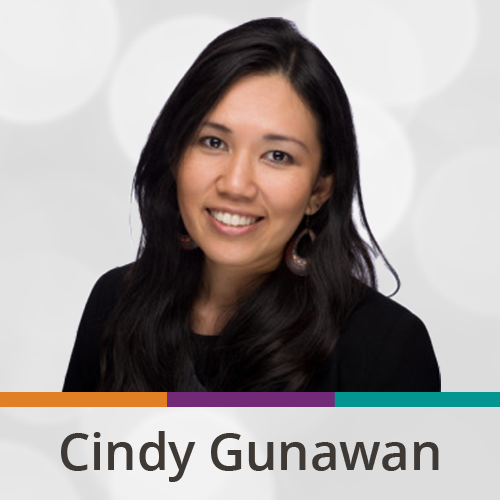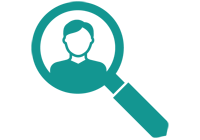 Most of us like to think we aren’t biased people, at least not consciously. However, we have been hardwired to make unconscious decisions. Think about it, if you had to consciously think about every decision you made each day, you’d get nothing done. You don’t think about opening a door, you just do it. While these unconscious decision-making processes allow us to function, they also bring unconscious biases, and that’s when it gets a bit problematic.
Most of us like to think we aren’t biased people, at least not consciously. However, we have been hardwired to make unconscious decisions. Think about it, if you had to consciously think about every decision you made each day, you’d get nothing done. You don’t think about opening a door, you just do it. While these unconscious decision-making processes allow us to function, they also bring unconscious biases, and that’s when it gets a bit problematic.
I found myself exploring my own unconscious biases after I attended a recent event conducted by Seek. For those who don’t know, unconscious biases are “social stereotypes about certain groups of people that individuals form outside their own conscious awareness.” Put simply, we stereotype people without even knowing we do, and often undermine our own conscious values at the same time. You can see how it would be an immense obstacle to overcome, especially when it comes to recruitment.
These biases aren’t just limited to the kinds of discrimination that we usually hear about either. For instance, I learned that I’m often biased against people who don’t make eye contact. To me, a lack of eye contact implies lack of trustworthiness, but this logic doesn’t take cultural differences into account. Some cultures rely on lack of eye contact to establish respect, the complete opposite of what many of us expect in New Zealand workplaces.
With these biases in play, how can we be sure that we are hiring people based on their skills rather than our attitudes towards them? How do we make sure that we are being as objective as possible while often being unaware of our lack of objectivity? No one wants to miss out on great candidates, especially in such a competitive market. Thankfully, there are a few tools to help you do this.
Become Aware of Your Biases
The easiest way to overcome your unconscious biases is to become aware of them. However, doing so can often be an uncomfortable experience, so it’s important to remember that it’s once you know about these biases that you can work to undo them.
A good first step could be to use something like Harvard’s “Project Implicit” test to examine your unconscious reactions. It’s an extremely eye opening experience, and you’ll soon learn just how implicitly biased you are. There are a plenty of tests to take, but it is just the start in becoming aware of your biases. Perhaps talk to your managers or peers and organise specialised training.
Through being actively retrospective we can begin to understand why we’ve made the decisions we have. Think about the first time you met someone, and what kind of impression you formed. Ask yourself why that was. While second guessing can be problematic, it’s helpful to constantly examine our own behaviour and understand exactly why we do the things we do.
Have a look around you, do most of the people you spend time with look, think, act and speak like you? It’s natural to want to spend time with people who are similar to us, but this lack of diversity only exacerbates the problem.
Embrace Diversity
New Zealand is becoming an increasingly more diverse nation, as is the rest of the world. While our brain develops biases as shortcuts to help us make decisions, this basic survival instinct is really counterproductive to a healthy workplace environment.
 Diverse workplaces tend to be more adaptable, have better customer service, greater innovation and higher rates of recruitment and retention. This is because people are opening themselves up to possibilities that weren’t present before, and giving them a wider scope for options. However, it’s important to manage our biases in order to keep the workplace inclusive.
Diverse workplaces tend to be more adaptable, have better customer service, greater innovation and higher rates of recruitment and retention. This is because people are opening themselves up to possibilities that weren’t present before, and giving them a wider scope for options. However, it’s important to manage our biases in order to keep the workplace inclusive.
We need to leave our assumptions at the door, which is easier said than done. The more we actively engage with a diverse group of people, the easier it is to identify and deal with our unconscious biases. If we actively surround ourselves with positive associations towards a particular group of people, it makes forming negative stereotypes harder. It requires an open mind. It’s remembering that eye contact doesn’t mean the same thing across all cultures, which makes using it as a judgement wildly counterproductive. This is why it’s important to prepare for candidate interviews in advance to ensure you’ve hired the best candidate for the job based on facts, not feelings.
Closing Thoughts
Unconscious bias is a difficult thing for us to deal with, but as our workforce (and our nation) continues to diversify, it is incredibly important that we do everything we can to make sure that we have the most inclusive work environment. That starts with the recruitment process. Yes, this requires a lot of thought and effort, and an in-depth awareness of our behaviours and feelings that can sometimes make us uncomfortable. However, the rewards that come with doing this far outweigh the discomfort. After all, we all want to hire the best candidate for the job, right? To do that to the best of our ability, we need to able to manage our biases – even if we don’t know they’re there.

